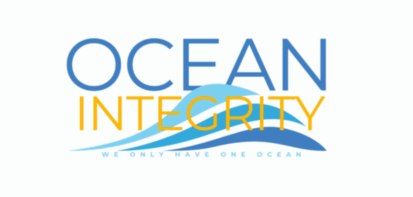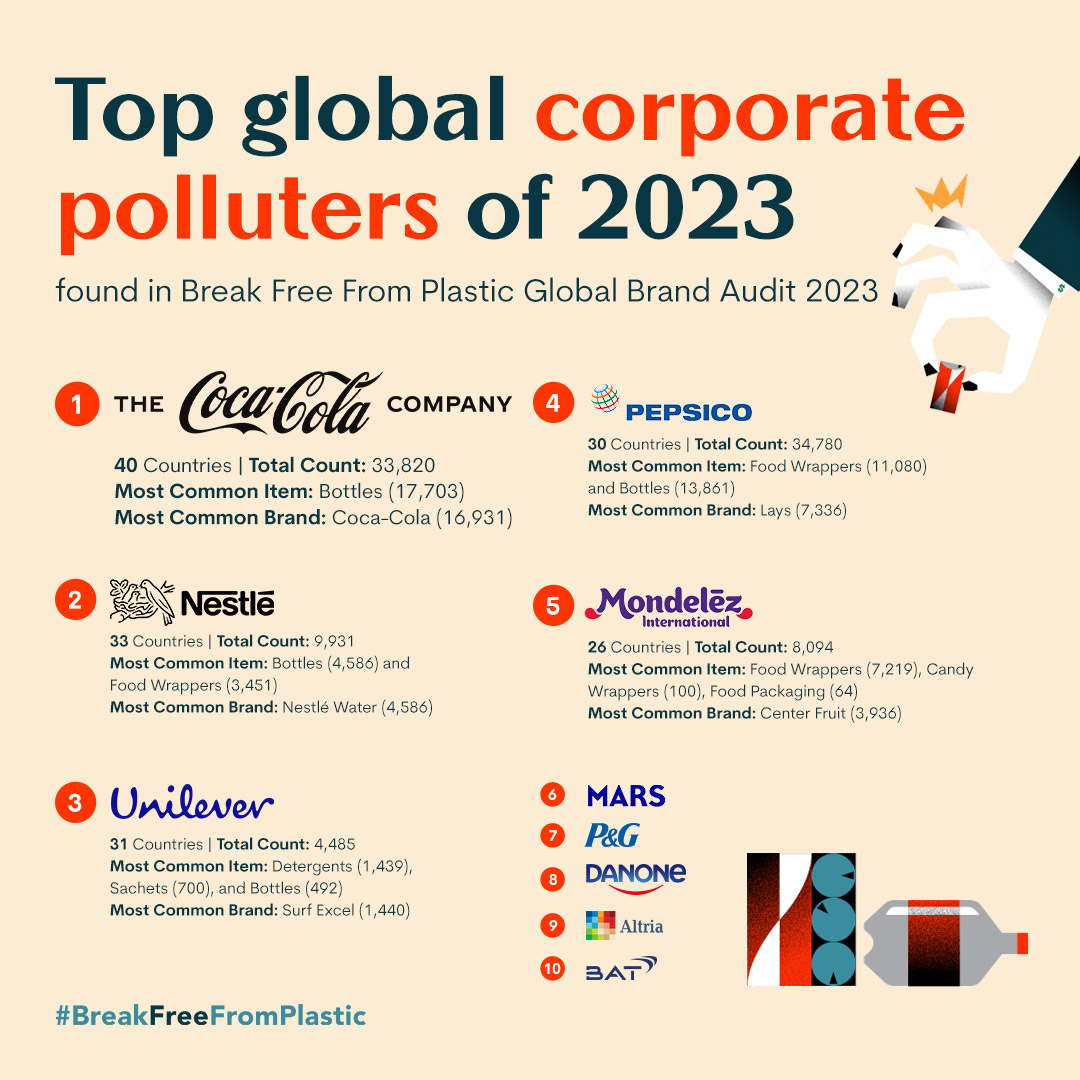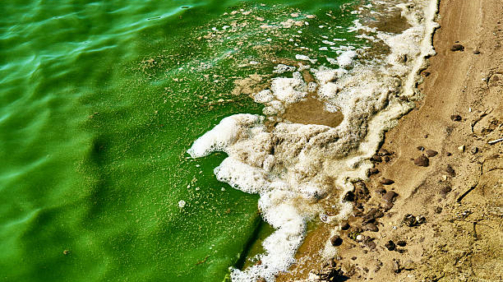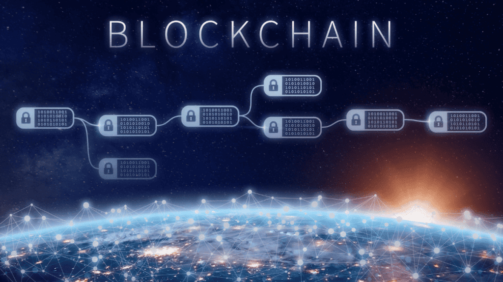Who’s Still Polluting Our Planet? The 2023 Global Brand Audit Reveals All
By Captain Kieran Kelly – Founder of Ocean Integrity.
In 2023, more than 8,800 volunteers across 41 countries participated in 250 brand audits organized by Break Free From Plastic, collecting and examining 537,719 pieces of plastic waste. These volunteers represented 97 civil society organizations, and together they documented 6,858 brands owned by 3,810 parent companies.
The Usual Suspects and a New Rising Contender
The audit continues to reveal a troubling pattern. At the top of the list of global plastic polluters for the sixth year in a row is The Coca Cola Company, now holding the highest single year total of branded plastic waste recorded with 33,820 pieces. But this year brought a notable shift. Though still not the top polluter by geography, PepsiCo overtook Coca Cola in sheer volume of branded plastic waste, highlighting a growing environmental footprint. Other companies consistently found to be major contributors include Nestlé, Unilever, Mondelēz International, Mars, Inc., Procter & Gamble, Danone, Altria, and British American Tobacco.
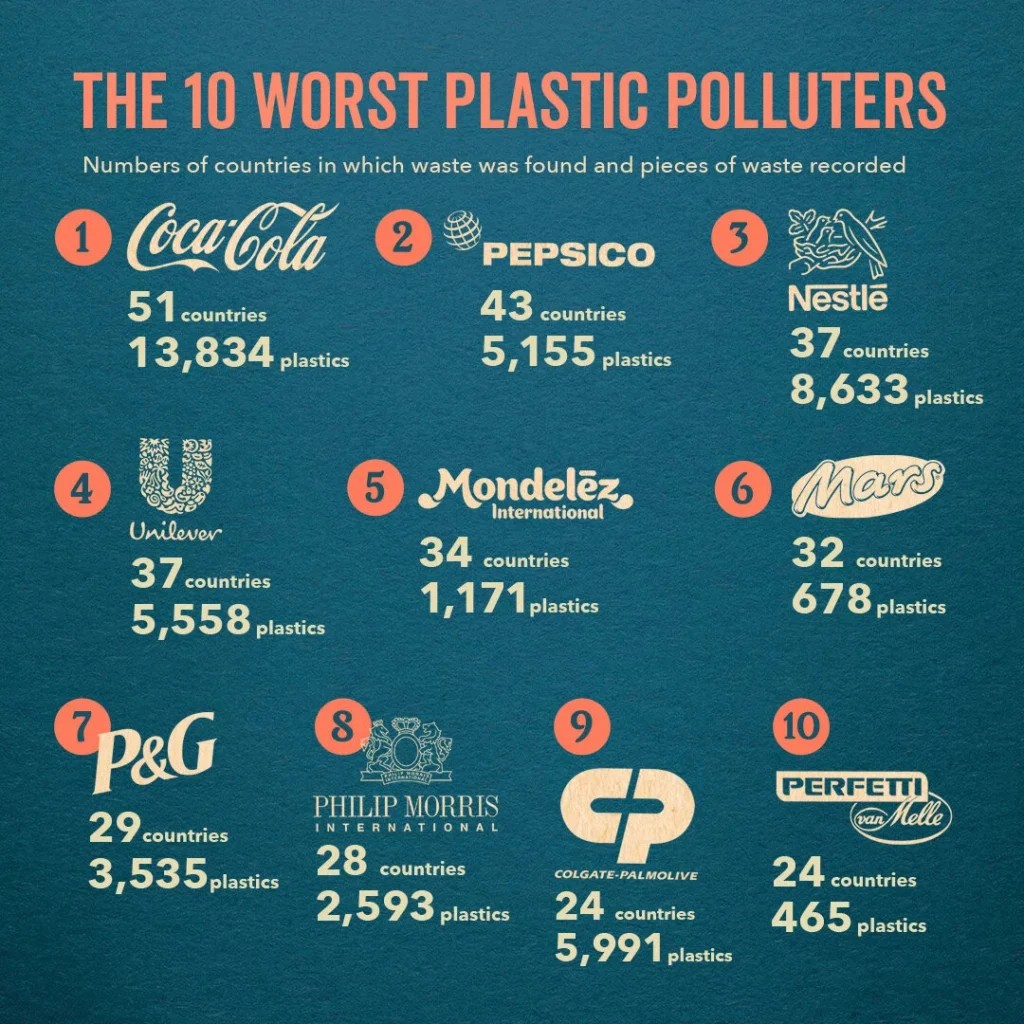
Out of Sight, Out of Mind? Hardly—Audits as Accountability Tools
These audits are not just data collection. They are powerful tools for accountability. In 2023, brand audit findings were directly cited in legal actions across Europe targeting Danone, Coca Cola, and Nestlé, exposing misleading claims such as “100% recyclable” on single use bottles.
What’s Driving the Plastic Crisis?
The companies topping the polluter list also lead in single use plastic production. For example, in 2022 alone, Coca Cola produced 3.43 million metric tons of plastic packaging, followed by PepsiCo at 2.6 million, and Nestlé at 0.927 million. These figures show that voluntary sustainability commitments mean little without real reductions in plastic usage.
What Break Free From Plastic Demands from Corporations
Break Free From Plastic issued four clear calls to action for big consumer goods companies. Disclose the full scale of their plastic footprint and packaging content. Reject false solutions like plastic burning and chemical recycling. Redesign business models to eliminate single use packaging entirely. Invest in affordable and accessible reuse, refill, or plastic free systems globally, ensuring fair treatment for all workers in the transition.
Why the 2023 Audit Matters to You
This report is more than a statistic. It is proof that the plastic problem is not abstract. It is driven by identifiable companies. It exposes the gap between corporate pledges and real world pollution. And it empowers communities to hold these brands accountable through advocacy, legal action, and demand for cleaner solutions.
Ocean Integrity stands with this mission. We are cleaning rivers, empowering communities, and building transparency at every step. But we also need pressure on global brands to change. Because solving the plastic crisis requires both collective action and systemic transformation
